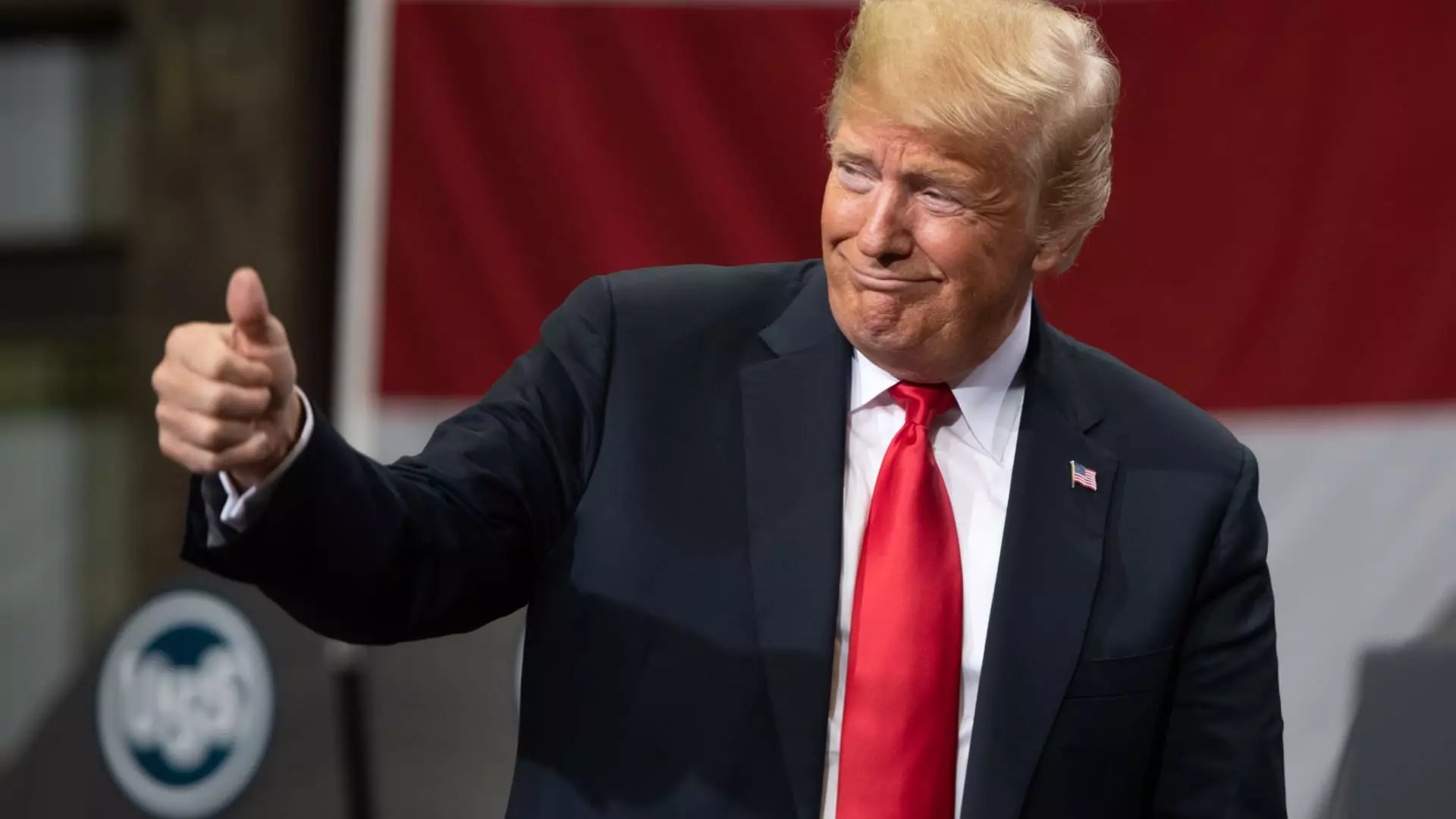In an era dominated by rapid information dissemination, few individuals have managed to create as much financial chaos as former President Donald Trump. A recent incident illustrated this power beautifully—if not disturbingly—when Trump encouraged investors via a social media post to “buy stocks” just as he was about to roll back some provocative tariffs. The reaction was immediate, raising questions about ethics, responsibility, and the unpredictable nature of stock trading in a climate influenced by personal opinions over sound economic policies.
A Tantalizing Yet Troubling Directive
Timing is everything in the stock market, yet the manner in which Trump circumspectly hinted at stock purchases raises eyebrows. At 9:37 a.m. ET, Trump’s call to action on Truth Social appeared as a beacon of hope for investors, suggesting a golden opportunity for profit. But let us break this down: is it merely a twist of fate, or does it symbolize something more insidious? When our leaders wield such influence, the distinction between personal investment and market manipulation blurs—a situation ripe for scrutiny.
The allure of Trump’s directive becomes problematic when we consider its implications. Could this have long-term consequences for how retail investors interact with the market? Those who acted impulsively on his advice were not merely trading stocks; they were engaging with a broader narrative of opportunism that encourages reckless behavior. This was no whimsical recommendation; this was a calculated maneuver cloaked in charisma.
Market Response: A High-Stakes Rollercoaster
Stocks, like emotions, often swing in alarming directions when subject to impulsive actions. The swift rise in stock prices after the announcement was exhilarating for those who acted quickly and decisively. For instance, the SPDR S&P 500 ETF showcased an 11% jump, and Trump Media & Technology witnessed a staggering 22% rise in value within hours. These numbers tantalize the imagination and idealize market entry points—but let’s temper our enthusiasm with caution.
In the thrill of potential gains lies the unsettling reality of investor anxieties. The glaring question remains: are we merely athletes competing for victory in a cynical game? Promoting financial literacy is crucial, yet rather than elevating understanding, the recent episode only exemplifies how the masses can be swayed by powerful narratives, with unfortunate consequences for those left chasing the shadows of gain.
The Role of Social Media in Economic Manipulation
Social media has, without a doubt, transformed the landscape of financial decision-making. Platforms like Reddit and Truth Social now serve as backchannels for speculation and influence. The unprecedented ease with which rumors can spread raises serious concerns about regulatory oversight and fair play. Many investors are now susceptible to rapid emotional responses rather than rational analysis, mirroring behavior often seen in casinos rather than stock exchanges.
Moreover, Trump’s actions have sparked discussions about potential insider trading. The speculation surrounding whether investor behavior is influenced by privileged communication rather than inherent market value is worrisome—one could argue that it undermines the very foundations of fair trading. This dynamic shifts the landscape toward one where those in power can manipulate markets with a single word, leading us to question who really holds the card in this financial poker game.
Cultural Shifts in Investor Psychology
With the backdrop of soaring stock prices, we find ourselves at a crossroads in the cultural understanding of investment. The fervor of the retail investor, fueled by external validation from celebrity-like leaders, has led to a new breed of consumer—one that operates based on hype rather than fundamentals. The financial actions taken in response to Trump’s proclamations reflect a troubling descent into a culture of speculation and instant gratification.
This raises ethical concerns: are investors becoming mere pawns in a game dictated by a few powerful figures? As the financial ecosystem evolves, so does the necessity for robust regulatory measures. We need to promote a credible investment culture based on strong fundamentals, moving away from the tumultuous waves stirred by whims and fancies.
In an economic landscape where sentiment is as valuable as the stock itself, the question of ethics in investment, informed decision-making, and financial literacy will grow ever more critical. Investing should be an intellectual pursuit grounded in research and data, not merely an emotional gamble influenced by unpredictable social media posts. In this regard, we ought to cultivate a more informed populace that evaluates risks without being unduly influenced by the whims of charismatic leaders—and that’s an imperative we all must share.

Leave a Reply